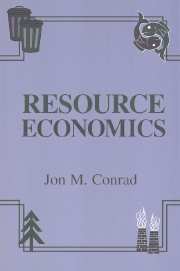Book contents
8 - Sustainable Development
Published online by Cambridge University Press: 05 June 2012
Summary
Introduction and Overview
The term sustainable development entered the lexicon of specialists following the release of a report by the UN's World Commission on Environment and Development (WCED). The commission, chaired by Gro Harlem Brundtland of Norway, defined sustainable development as “development that meets the needs of the present without compromising the ability of future generations to meet their own needs. … At a minimum, sustainable development must not endanger the natural systems that support life on Earth.” In 1992, at the Earth Summit in Rio de Janeiro, sustainable development emerged as the common theme linking conventions to reduce the emissions of greenhouse gases and to preserve biodiversity. With these conventions being ratified by more than 140 countries, one might conclude that the concept must have broad international appeal.
The widespread acceptance of sustainable development as a guiding philosophy is also the result of its vagueness or multiple interpretations. Sustainable development means different things to different people, including academics, who often define the term from the perspective of a particular paradigm within their specialized field. Economists would tend to think of sustainable development as a steady state within a natural resource or macroeconomic growth model. Sociologists might think of sustainable development in terms of a socioeconomic system that evolves slowly and nondestructively with its supporting ecosystem.
- Type
- Chapter
- Information
- Resource Economics , pp. 166 - 188Publisher: Cambridge University PressPrint publication year: 1999



